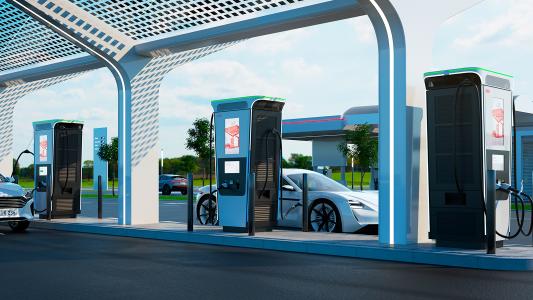Food tech startup Nordic Harvest is building a massive vertical farm that shows how moving agriculture indoors can allow us to produce better crops on less land.
“[The plant] gets exactly the amount of nutrients, water, light, and CO2 it needs,” the company told photographer Alastair Philip Wiper. “You could call it a plant paradise.”
The challenge: People have been farming for about 12,000 years, and while a lot has changed since our ancestors first started sowing seeds, a lot hasn’t: most farming still takes place outdoors, with plants grown in soil and reliant on the sun for light.
“You could call it a plant paradise.”
Nordic Harvest
This necessarily wastes a lot of water, as some will evaporate or flow away from plants before it can be absorbed. It also requires the use of pesticides and fertilizers that can run off into the environment.
Down on the vertical farm: About 20 years ago, a Columbia University professor proposed the idea of farming crops inside of skyscrapers, using artificial light and closed water systems.
Because crops could be grown in layers, these “vertical farms” or “plant factories” would allow us to dramatically increase the amount of food we could produce on a plot of land. We wouldn’t need to worry about pests or less-than-ideal weather conditions indoors, either.
The hurdles: Today, there are vertical farms across the globe, but one thing holding back the concept has been the cost: it’s much cheaper to rely on the sun and rain for light and water than to power LEDs and hydroponic systems.
Additionally, if the electricity for the vertical farm comes from fossil fuels, it may be contributing to the problem of climate change, rather than helping solve it.
The plant factory: In December, Danish startup Nordic Harvest completed the first phase of construction on what will be Europe’s biggest — and most efficient — vertical farm just outside of Copenhagen.
The plants grow in 14 stacked layers, within a warehouse-like 75,000 square foot facility, using technology developed by Taiwan’s YesHealth Group. This tech includes advanced hydroponics systems, smart software, and autonomous robots — all of which help cut costs.
The vertical farm uses 250 times less water and 250 times less space to grow the same amount of crops.
“Lots of vertical farms in the world will never be profitable,” Nordic Harvest CEO Anders Riemann told Xinhua. “But I also understand that the best way to make a profit is to automate the workflow and that consumers are willing to pay a higher price for a higher quality product.”
All of the electricity for the facility is sourced from wind turbines, helping minimize its environmental footprint.
The annual harvest: Nordic Harvest is currently producing about 275 tons of leafy greens and herbs at its vertical farm, on an annual rate, using 250 times less water and 250 times less space than a traditional farm would require.
These plants are packaged for sale within 10 minutes of harvesting, and the whole process is automated — human hands never touch the crops.
Nordic Harvest’s veggies are on sale in Danish supermarkets for about the same price as organic greens, and the company predicted in December that it would be profitable in 2021.
Looking ahead: The company expects its vertical farm to reach full capacity by the end of 2021. At that point, it’ll be producing about four times as much as it is now (about 1,100 tons of crops annually) from an area about the size of a “large football pitch,” Riemann said.
“This means that with just 20 production facilities, all of Denmark’s annual consumption could be covered in an area equivalent to 20 football pitches,” he added.
We’d love to hear from you! If you have a comment about this article or if you have a tip for a future Freethink story, please email us at tips@freethink.com.
